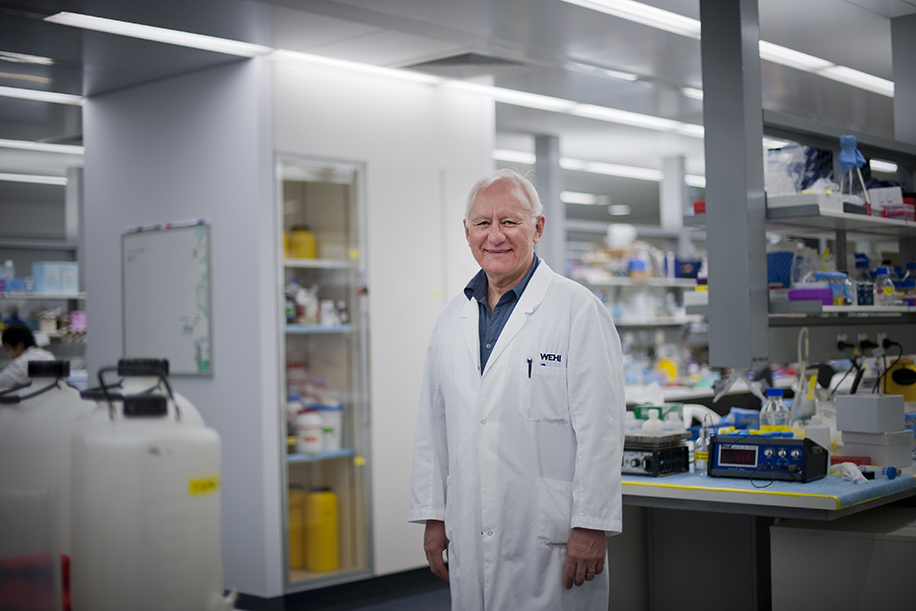The nation’s leading health and medical researchers, innovators and advocates have been recognised at Research Australia’s 21st Health and Medical Research Awards Gala Dinner this evening in Melbourne.
Research Australia’s CEO Nadia Levin reflected on the importance of the Awards. “They honour and celebrate Australia’s outstanding researchers and innovators, and those who support their work across the health and medical research innovation pipeline – whether that be in transformative research, or impactful data innovations. The fact all awards are nominated by sector peers significantly recognises how exceptional these nominees are in contributing to national and global health outcomes.
As the national peak body for the entire health and medical research innovation pipeline, Research Australia views the awards as a celebration of what is working well across the pipeline.
Ms Levin in her speech highlighted some of the current complexities and opportunities in the sector. “We recognise that researchers and innovators are working in a rapidly changing landscape. National and global challenges are becoming more complex. It is imperative that our sector, including the policy and funding landscapes, mobilises the disparate parts of our pipeline, activates the implementation of the policy levers and removes barriers for research and innovation to thrive; and ignites the urgency of getting this done now.
“Right now, we have the unique opportunity to reform and reimagine a whole of system that sets up a future Australia. One that is responsive, affordable, and sustainable, but also one that enables Australia to reach its potential as a health and medical research innovation global leader. The calibre of the nominees, finalists, highly commended and winners demonstrates Australia’s exceptional talent and our broader potential in health innovation.”
The prestigious Peter Wills Medal, which recognises an individual who has made an outstanding, long-term contribution to building Australia’s international reputation in areas of health and medical research and fostering collaboration for better health, was presented by Research Australia Chair, Martin Bowles AO PSM to Clyde Campbell AM. Mr Campbell founded Shake It Up Australia Foundation, in partnership with The Michael J. Fox Foundation, following a diagnosis Parkinson’s at age 44. The Foundation aims to increase awareness and funding for Parkinson’s research to prevent, slow and stop the progression of the disease and ultimately lead to a cure. Australia is renowned globally for leading researchers and innovators specialising in Parkinson’s.
Research Australia’s premium event partner was the University of Melbourne, and the award sponsors included Australian National University, AbbVie, the Victorian Government Department of Jobs, Skills, Industry and Regions, Digital Health CRC and GSK.
Assistant Minister for Health and Aged Care, and Assistant Minister for Indigenous Health, the Hon Ged Kearney delivered a keynote address at last night’s event. Attendees also heard from Deputy Premier of Victoria, the Hon Ben Carroll MP, Senator the Hon Anne Ruston, Shadow Minister for Health and Aged Care, and Senator Steph Hodgins-May, Greens Spokesperson for Industry, Innovation and Science.
A full list of winners follows.
2024 Award Winners
Peter Wills Medal: Created in honour of Research Australia’s founder, Peter Wills AC, the Peter Wills Medal is the flagship award and recognises someone who has made an outstanding, long-term contribution to building Australia’s international reputation in areas of health and medical research and fostering collaboration for better health.
Winner – Mr Clyde Campbell AM (Shake It Up Foundation)
Discovery Award (sponsored by Victorian Government Department of Jobs, Skills, Industry and Regions): This Award recognises an early career researcher (anytime from qualification but no more than 5 years past PhD) whose paper/patent/discovery has already demonstrated its importance or impact.
Winner – Dr Mustafa Atee (The Dementia Centre, HammondCare)
Great Australian Philanthropy Award: This Award profiles personal philanthropy that is outstanding in its generosity, effectiveness, vision, high impact and transformative quality. The Award recognises and encourages personal philanthropic donations over a period of time by an individual or family to Australian health and medical research.
Winner – Paul and Sue Taylor
Advocacy Award (sponsored by AbbVie): This Award recognises and congratulates exceptional contributions made by research champions who help raise community awareness and understanding of the importance of health and medical research.
Winner – Dr Jane Tiller (Monash University)
Frontiers Research Award (sponsored by Australian National University): This Award recognises transformative research that could revolutionise health outcomes in Australia and internationally.
Winner – Centre for Microbiome Research (Queensland University of Technology)
Digital and Data Innovation Award (sponsored by Digital Health CRC): This Award recognises an individual or team whose innovation is considered to represent one of the most impactful new data innovations in the health and medical research sector within the past five years.
Winner – The RMIT University-Telstra Health-Digital Health CRC project team
Health Services Research Award: This Award is for an individual or team who has provided leadership and made an outstanding contribution to health services research; driven research that has led to a significant improvement in healthcare; and/or has championed the development of the health services research field.
Winner – Professor Christobel Saunders AO (The University of Melbourne)
GSK Award for Research Excellence: The GSK Award for Research Excellence recognises outstanding achievements in medical research with a focus on improving human health.
This is one of the most prestigious and long-standing awards available to the Australian research community. GSK Australia is proud of its research legacy, having now presented the Award for Research Excellence for more than 40 years, supporting local research and helping to improve health outcomes for patients in Australia and around the world. This year’s award is accompanied by a grant of $100,000 to advance the winner’s research.
Winner – Professor Matthew Kiernan AM (Neuroscience Research Alliance)

